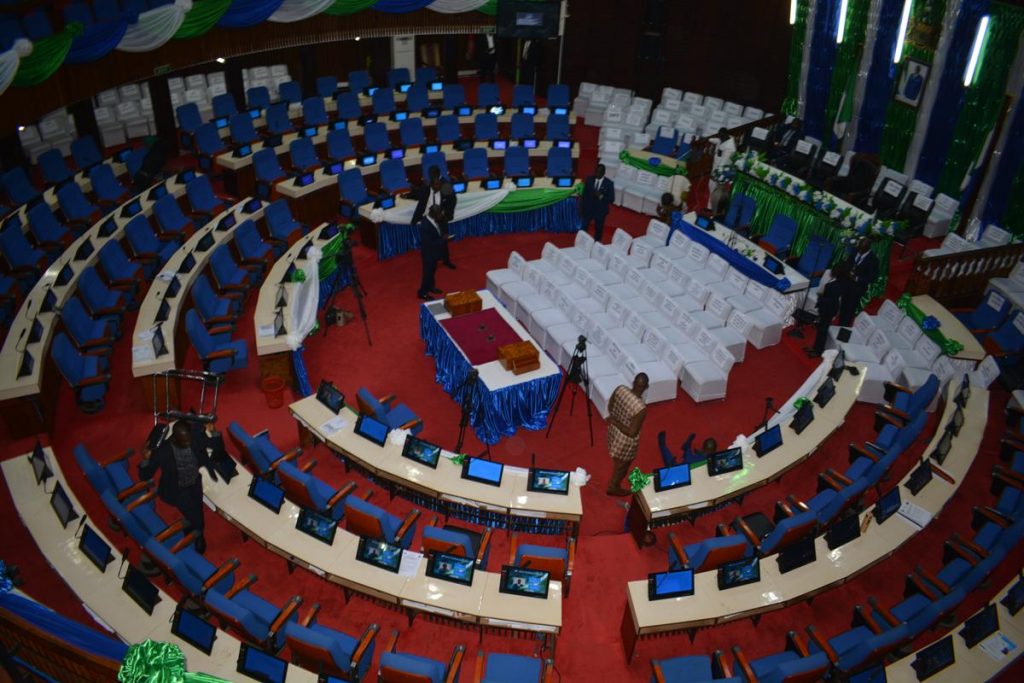As the opposition All People’s Congress (APC) continues its boycott of the government, many Sierra Leoneans, including its supporters, are probably wondering how far the party is prepared to go with the protest and what the endgame is. Well, we have been thinking about it too.
The wound is fresh; and so is the pain. That is how one analyst described the situation of the APC with regards to its boycott and the stalemate that followed the June 24 elections. Let us throw a few questions to build on this analogy of wound and pain. What happens if/when the pain subsides with the passage of time? Would they attend to their wound if it starts showing signs of an infection and risks becoming gangrenous? Will they risk amputation? The point of these seemingly silly questions is to try and understand where the APC is headed with boycott—which seems like the only working tool in their toolbox. The party took a hardline not to take their grievances to the Court because they do not trust the justice system. You can see where they are coming from considering the courts’ recent history of elections related cases. For clarification’s sake, we are not passing judgment on the position or approach of the opposition in addressing what they believe was unjust and illegal. Our interest here, like many citizens, is to try and make sense of the endgame through a set of questions.
As things stand, at least on the surface, the opposition seem united—not only in their rejection of the results, but also in their resolve to stay away from governance. Will they continue to be this resolute and united? It will be interesting to see how they move on from here. Knowing the nature of our politics and the rewards and perks it offers to elected or appointed officials, it will be interesting to see how the APC keep their elected officials in line, and at the same time avoiding cracks that will throw them into disarray. Already, one member of parliament has jumped ship—Mohamed Bangura. Will he remain the “black sheep” of the APC, or he is going to get company in due course? As we say in Sierra Leone, “opposition nor easy oh!” The party will probably be coming under serious pressure from their newly elected members of parliament and local council officials, especially if they risk losing those seats to other candidates in the party and that leads us nicely to the next point.
The Speaker of Parliament has started playing carrots and sticks, encouraging APC elected members of parliament to participate, while hinting at the possibility of losing their seats due to their continued absence. Well, reminding them of the rules, basically. This is another situation that the APC will have to deal with, and one wonders whether this legality has been part of the consideration. It will seem reckless—given the prevailing circumstances—for the boycotting officials of the APC to be thrown out of their elected positions, but there will always be that one phrase: the rule is the rule. And to be frank, you do not want to doubt or rule anything out in this country—a set of MPs were kicked out of the previous parliament, and it was based on legality which to date, remains illegal in the eyes of many. Is the opposition prepared for this sequel?
There is another scenario that is a lot more “natural” than the others and it has to do with the risk of the whole resistance losing steam and falling off the radar due to lack of interest. There seems to be a lot of reliance or at least references to “the international community”, especially the various observer missions that continue to raise concerns about the transparency of polls. They will move on at some point. Sierra Leone is not the only country on the agenda and in fact, as we speak, it is kicking off in Niger while Mali continues to evolve. Sudan is now at war and we all know what that means for civilians. There are too many issues in the world and the interest of the international community keeps shifting. So, at some point Sierra Leone will fall off the radar. Locally, people will lose interest in the election outcome because they are too poor and too hungry to keep waiting for an opposition that offers no answers to their everyday problems.
These are some of the scenarios and the ruling party and government would savour them. Talking about the ruling party, there is also another question worth exploring as part of our efforts to understand the opposition’s thinking. What if the government carries on with business, without being bothered by the torment of the APC? There are indications of that already as parliament goes ahead with the process of confirming new government appointees. As the APC hold the line they have right now, the government is also trying hard to prove the irrelevance of the boycott by carrying on, regardless of the stalemate. Clearly, it is a bad situation for democracy and the biggest losers are the people who will probably never know what happened to their votes and those who voted for the opposition would have to wait long to actually be represented.
Having laid out these questions and the possible scenarios that may unfold in the context of the opposition boycott, let us return to the crux of the matter: the endgame. How far will the APC go? It is clear that very few pieces are left on the chessboard. What is the APC’s next move? Are they equipped to deal with the possibilities? How it all ends will shape the present dynamics and internal politics of the party, as well as its future.
There is rain in the forecast today. So, whatever you are up to, stay safe and dry.


